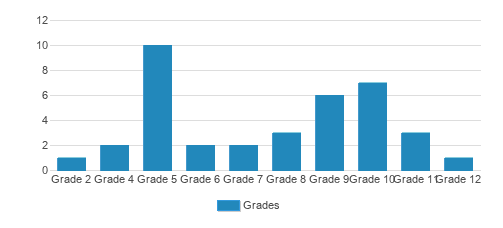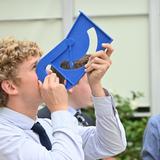The George N. Hunt Campus School was established in 1982 for residential and day students with learning and behavior disorders, including ADD and ADHD, who have failed to succeed in their public schools.
The School provides a highly structured, innovative learning environment with individualized programs designed to enhance each child's ability to learn.
Individual and group therapy are included in the school day; an after-school program is also available for day students.
Students are provided with a safe, comfortable environment where academic and social experiences can increase their sense of competency and self-esteem.
The small student-to-teacher ratio facilitates positive academic and social growth and enables the students to learn under conditions which promote trust, understanding, acceptance, and most of all, respect.
The School is organized into ungraded classrooms with each child being placed in the classroom that best meets his/her academic needs.
An Individualized Education Program is designed for every child. This IEP includes goals from each discipline to provide a well-structured program.
Quick Stats (2025)
- School Type: Special Education School
- Grades: 2-12
- Enrollment: 31 students
- Application Deadline: None / Rolling
- Source: National Center for Education Statistics (NCES)
School Overview
School Type
Religious Affiliation
Grades Offered
Grades 2-12
School Calendar
Student Body
Total Students
31 students
Student Body Type
Co-ed
% Students of Color
38%
State avg.: 28%
Students by Grade

Academics and Faculty
Total Classroom Teachers
5 teachers
Student : Teacher Ratio
6:1
National avg.:
Tuition and Acceptance Rate
Admission Deadline
None / Rolling
School Notes
- The George N. Hunt Campus School was established in 1982 for residential and day students with learning and behavior disorders, including ADD and ADHD, who have failed to succeed in their public schools. The School provides a highly structured, innovative learning environment with individualized programs designed to enhance each child's ability to learn. Individual and group therapy are included in the school day; an after-school program is also available for day students. Students are provided with a safe, comfortable environment where academic and social experiences can increase their sense of competency and self-esteem. The small student-to-teacher ratio facilitates positive academic and social growth and enables the students to learn under conditions which promote trust, understanding, acceptance, and most of all, respect. The School is organized into ungraded classrooms with each child being placed in the classroom that best meets his/her academic needs. An Individualized Education Program is designed for every child. This IEP includes goals from each discipline to provide a well-structured program.
Source: National Center for Education Statistics (NCES)
Frequently Asked Questions
When is the application deadline for George N Hunt Campus School?
The application deadline for George N Hunt Campus School is rolling (applications are reviewed as they are received year-round).
School Reviews
Endorse George N Hunt Campus School. Endorsements should be a few sentences in length. Please include any comments on:
- Quality of academic programs, teachers, and facilities
- Availability of music, art, sports and other extracurricular activities
- Academic or athletic awards
Recent Articles

How To Use AI For Research: A High School Student's Guide
We introduce teenagers to AI as a powerful alternative to traditional search engines. This practical guide walks students through using AI tools like Perplexity and ChatGPT for academic research while maintaining intellectual integrity.

Podcasts That Will Change the Way You Think About Education
This article highlights a curated selection of podcasts that offer thought-provoking discussions, expert insights, and innovative ideas on various aspects of education. From exploring new teaching methods and technologies to discussing policy changes and social issues, these podcasts provide a wealth of knowledge and inspiration for anyone interested in education. Each podcast is briefly described, highlighting its unique focus and tone.

For-profit vs. Not-for-profit Schools
This comprehensive guide explores the differences between for-profit and not-for-profit private schools, discussing their organizational structures, advantages, and key considerations for parents. It emphasizes that a school's success is determined by its educational quality and management rather than its profit status.






